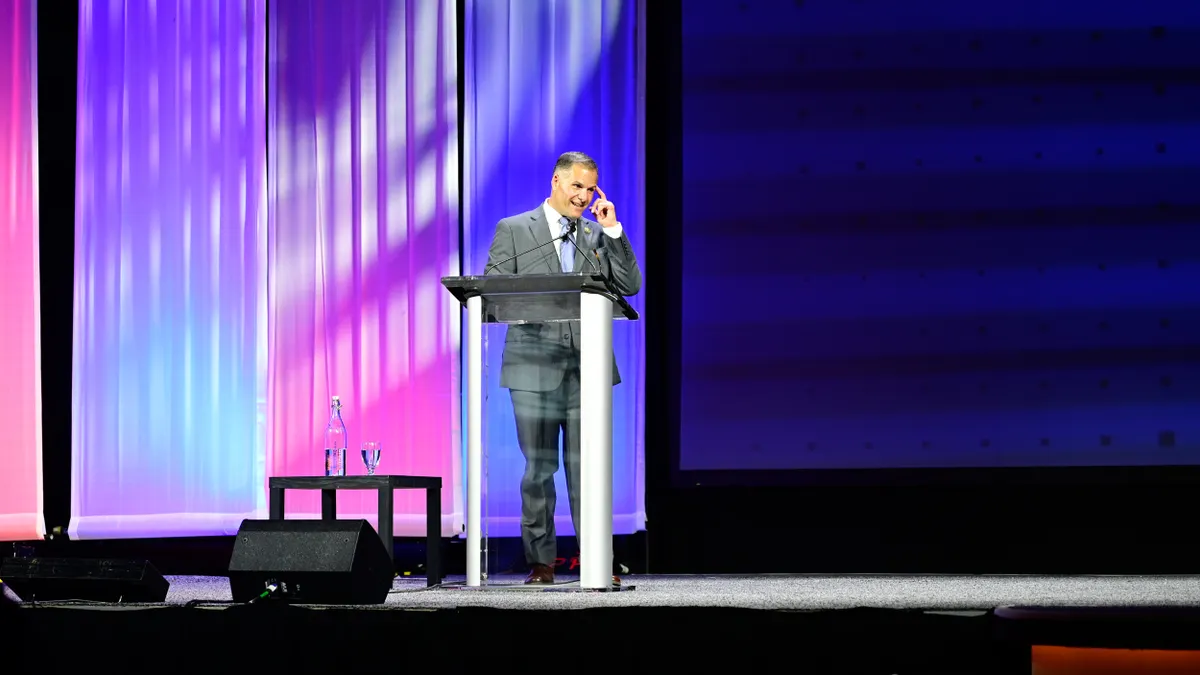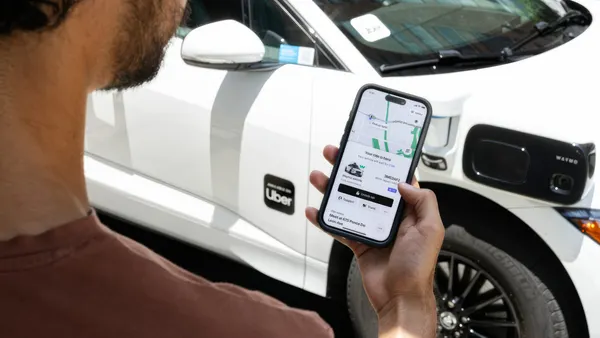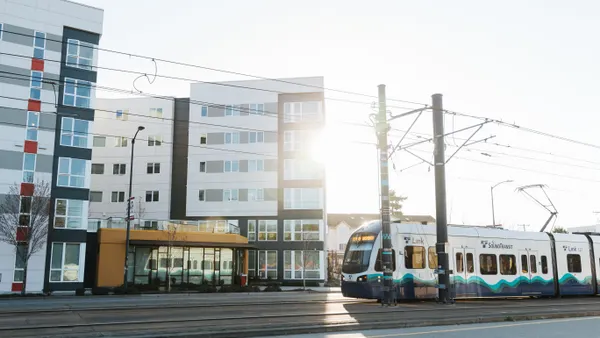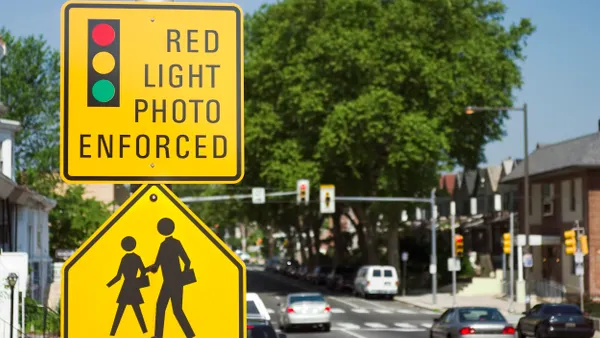Dive Brief:
- Federal Transit Administrator Marcus Molinaro said safety, efficiency and accessibility are among the agency’s top priorities during an address Monday at the American Public Transportation Association’s annual meeting in Boston.
- Molinaro emphasized the FTA’s role as a partner in helping people get where they need to go and the role of local authorities in transit development and public safety.
- “American families want to trust that when they enter and make use of a public transportation system, that they will get to where they're going efficiently, effectively, affordably and safely,” he said.
Dive Insight:
A new administration in the White House brought changes in federal priorities for cities, states and transit authorities this year.
In April, Transportation Secretary Sean Duffy threatened funding for projects that include diversity, equity and inclusion practices. In August, the FTA proposed new guidelines that would eliminate the “social cost of carbon” calculation for Capital Investment Grant programs, returning to a methodology used before 2013.
During Monday’s speech, Molinaro outlined the main priorities for transit agencies, governing bodies and the FTA.
Reduce crime on transit systems. “The safety of those who rely on transportation systems around America and the security of their systems is without question the top priority of this administration, and we will confront it boldly, bluntly and in some ways unorthodox,” Molinaro said.
Assaults, robberies, drug use and fare evasion should not be “normalized,” he said, adding that local leaders who tolerate these crimes make transit systems less safe.
“Buses aren't roaming homeless shelters,” he said. “We cannot allow an environment [on transit property] that breeds lawlessness.”
Increase accessibility for transit riders. “We will make universal accessibility and universal design a priority” in both transit vehicles and stations, Molinaro said. Complying with the Americans with Disabilities Act “is the floor, not the ceiling,” he added.
Ensure that transit authorities efficiently manage their systems. “We're going to put priority on making sure that the system you have is invested in before we start looking at things that may not necessarily generate new revenue opportunity,” he said. The FTA will “start measuring transit as it relates to economic growth [and] economic opportunity.”
Streamline regulations to speed up project delivery. “Secretary Duffy wants to build big, wants to build fast, wants to build on time and under budget” by “cutting red tape, reforming some of our regulatory environments, making it easier to navigate through the maze of federal, state and local agencies,” Molinaro said.
Along with other federal agencies, the Transportation Department began updating its procedures for complying with the National Environmental Policy Act. The DOT said in the Federal Register that these changes would improve efficiency and reduce unnecessary delays.
Support U.S. transit equipment manufacturers. Molinaro emphasized the need to ensure that major manufacturers of rolling stock and transit buses have reliable resources, allowing them to have “clear expectations for delivering for transit agencies.”
He also urged agencies and cities to leverage public-private partnerships. “If your local municipality hasn't confronted density of development so that you can actually get the kind of dense infill in and around transit hubs and connectors, we're going to think differently about your proposal.”
Molinaro summed up by saying that “every decision should be based on one question: Will this make transit safer, more accessible and more useful for American families?”











